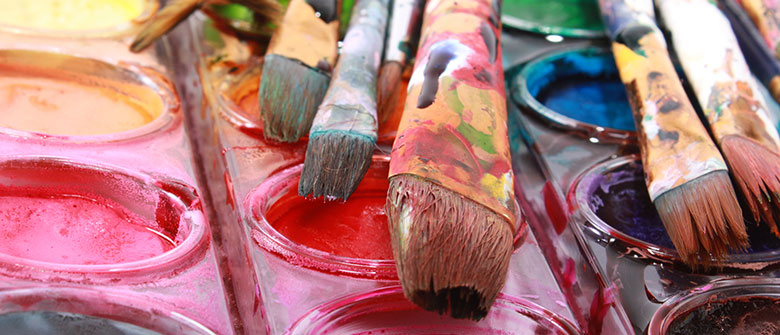
Countless studies correlate how the broad range of fine arts improve learning outcomes. Classes that teach painting, ceramics, film production, animation, dance, theater and music help develop essential skills that continue to flourish both inside the classroom and out.
A curriculum rich in art education provides the fertile ground for key skills to develop and grow. These skills include problem solving, creativity, collaboration, awareness, diligence and patience.
Problem solving. Successful artists find advantages despite the limitations of the tools and media they have to work with. Very rarely do artists have the perfect colors, lighting, space, or time. They need to find opportunities within constraints. Throughout this process, art students are strengthening problem-solving skills similar to those of engineers, scientists, writers, and other professionals. Learning to look at an issue objectively, like a math problem or science application, is something that is practiced and perfected over time. The same is true when creating art as it involves observing, reasoning and analyzing to determine how to construct what is in their mind’s eye.
Creativity. Thinking “outside of the box” is how new ideas are brought to life. The arts encourage students to think this way in everything they do.
Collaboration. Working together in a band, chorus group or theater production teaches the significance of a student’s contribution to the whole, no matter how small the role.
Awareness. The arts are a platform for students to learn about different cultures, current events and socioeconomic backgrounds. An artist’s work opens the door for questions, interpretation and understanding in a way that reading text may not.
Perseverance. Like any talent or skill, perfection takes time and a lot of practice. Struggling to learn and making mistakes can be challenging and frustrating. Learning to play a musical instrument, working with a new art medium or rehearsing the script for a play requires hard work and persistence.
Patience. Having the willingness to earn perfection necessitates an investment of time. Success relies solely on the individual and remaining focused on their goal despite any failures.
It should come as no surprise that the development of these essential skills through art education has also shown to play a significant role in academic achievement, social growth and emotional development. Children eventually leave the classroom and graduate to careers. Yet, the seeds that were sown through the fine arts will leave a lasting impression.
Need help getting started? Our veteran consultants are passionate about tailoring learning spaces to your educational goals. Call us at 1-800-260-2776 or email [email protected] to begin the conversation.


